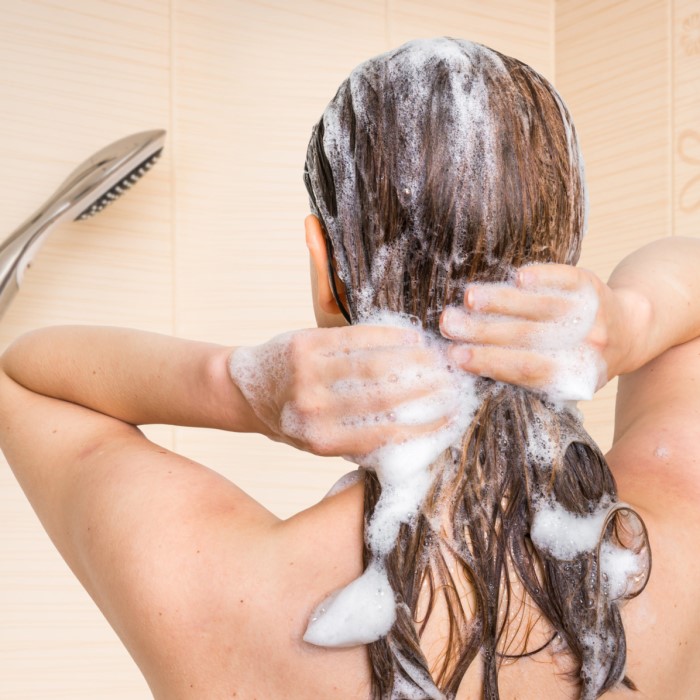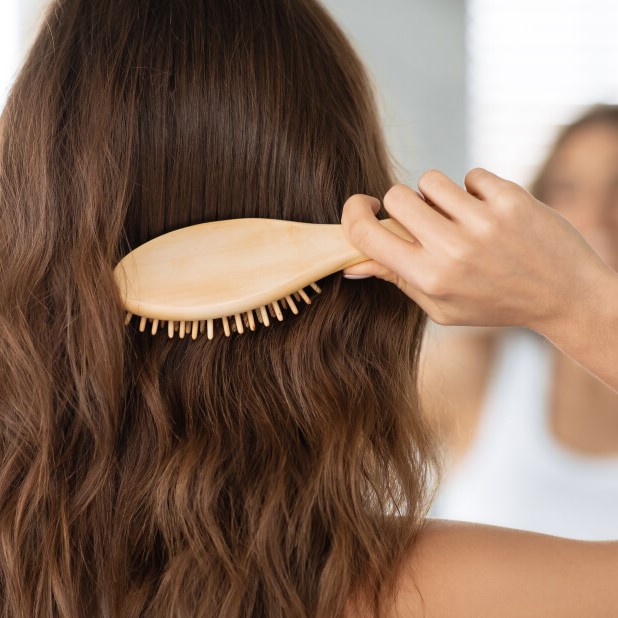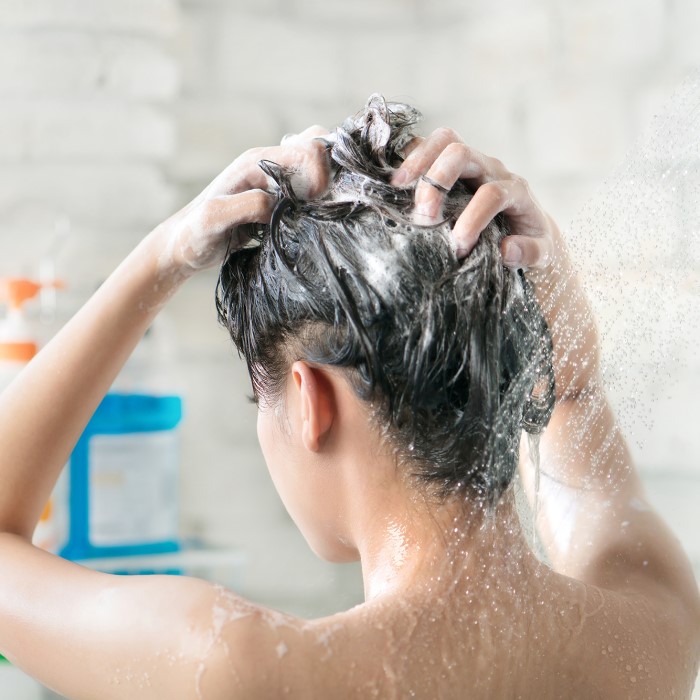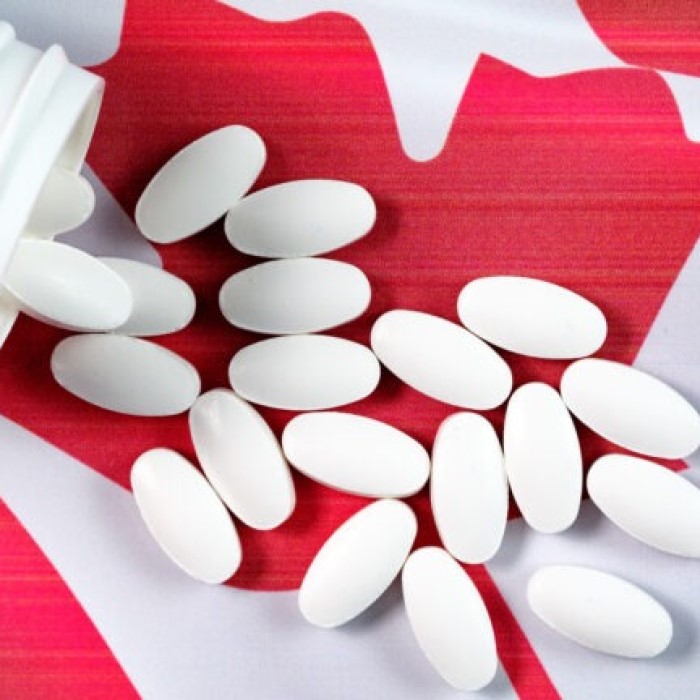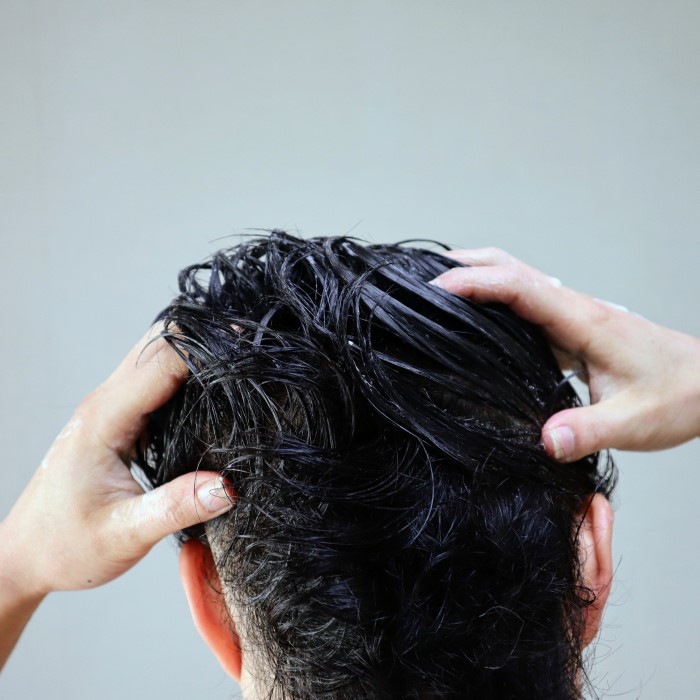
Does Washing Your Hair EveryDay Cause Hair Loss? Fact!
Introduction: The Hair Washing Dilemma
The question, does washing your hair everyday cause hair loss, has become increasingly common among individuals concerned about their hair health. With the rise of health and beauty awareness, many people fear that daily washing may lead to excessive hair shedding. As individuals become more focused on personal grooming and hair care, understanding the complex relationship between hair washing practices and hair loss is essential.

Hair loss can have various causes, including genetics, hormonal changes, nutrition, and even stress. Before attributing hair loss to washing frequency alone, it’s vital to consider the facts and dispel common myths regarding hair care. This article aims to provide a thorough understanding of hair health, the science behind hair loss, and practical advice for maintaining gorgeous locks while navigating daily washing routines.
Understanding the Hair Growth Cycle
The Phases of Hair Growth
- Anagen Phase: The anagen phase is the active growth stage of hair. This phase can last anywhere from two to six years, depending on individual genetic factors. During this time, hair follicles rapidly produce new cells, leading to hair growth.
- Catagen Phase: Following the anagen phase, hair transitions into the catagen phase, which lasts only a few weeks. In this stage, growth slows and hair follicles begin to shrink, signaling the end of the active growth period.
- Telogen Phase: This resting phase lasts about three months. Hair does not grow during this phase, and eventually, the old hair will shed to make space for new growth in the anagen phase. It’s common for individuals to lose some hair during regular washing, as this phase coincides with the practice.
Shedding and Daily Hair Loss
does washing your hair everyday cause hair loss? It’s completely normal to lose between 50 to 100 hairs per day as part of the natural hair growth cycle. Shedding at this rate is healthy and ensures new hair can grow. However, increased shedding can occur during wash days, leading many to mistakenly associate hair loss with washing frequency.
Washing Hair: Myths vs. Facts
Myth 1: Daily Washing Leads to Hair Loss
- Understanding the Myth: Many individuals believe that washing hair daily leads to hair loss. This notion stems from observing increased hair on wash days. However, this shedding is part of a normal cycle rather than a direct effect of washing.
- Research Findings: Scientific studies indicate that shampooing hair, regardless of frequency, does not remove hair follicles or directly cause subsequent hair loss. Instead, it’s the underlying factors such as genetics, diet, and health conditions that have a more significant impact.
Myth 2: Hair Becomes Dependent on Shampoo
- Clarifying the Concept: Some people worry that their hair becomes “dependent” on shampooing, suggesting that cessation will lead to more hair loss. In reality, hair does not develop a dependency on specific products. Instead, the scalp and hair react to product buildup and the body’s natural oils.
- Impact of Natural Oils: Fighting oiliness with frequent washing can lead to a cycle where the scalp compensates by producing more oil. Maintaining a balance between washing and preserving natural oils is essential for optimal hair health.
The Role of Hair Type and Shampoo
Influencing Factors
Hair Type Considerations
- Understanding Hair Types: Does washing your hair everyday cause hair loss? Each person has a unique hair type that can significantly influence how often they should wash their hair. Common hair types include oily, dry, curly, wavy, straight, and combination. Recognizing your specific hair type is essential for developing an effective hair care routine.
- Oily Hair: Individuals with oily hair often require more frequent washing—sometimes even daily. The scalp produces excess sebum, which makes hair look greasy more quickly. Regular washing helps remove this excess oil and keeps hair looking fresh and clean.
- Recommended Practices: For those with oily hair, using a gentle shampoo specifically formulated for oily scalps can help balance oil production without over-drying.
- Dry and Curly Hair: On the other hand, those with dry or curly hair may benefit from washing less frequently—typically every two to three days. Frequent washing can strip natural oils, which are essential for maintaining moisture and preventing frizz in curly and dry hair types.
- Moisture Retention: Allowing hair to retain some of its natural oils helps to keep strands hydrated, reducing the risk of breakage and allowing curls to maintain their shape. Individuals with dry or curly hair should also consider using leave-in conditioners or hair oils to enhance moisture retention between wash days.
- Straight and Wavy Hair: Straight and wavy hair can fall somewhere in the middle regarding washing frequency. Depending on scalp oiliness, some may wash every other day or every third day.
- Balanced Approach: It’s important for individuals with straight or wavy hair to strike a balance. Over-washing can lead to dryness, but infrequent washing may leave hair looking flat and dull.
Product Choice
- Impact of Shampoo and Conditioner: The type of shampoo and conditioner you choose plays a crucial role in maintaining hair health. The right products can enhance your hair’s appearance, while the wrong ones can cause damage over time.
- Avoiding Harsh Ingredients: Many conventional shampoos contain sulfates and other harsh detergents that can strip the hair of its natural oils. This can lead to dryness, irritation, and alarmingly, even increased oil production as the scalp compensates for the loss of moisture.
- Sulfate-Free Options: To prevent damage, consider switching to sulfate-free shampoos. These products cleanse hair gently without taking away essential natural oils, making them suitable for all hair types, especially sensitive scalps and dry hair.
- Selecting the Right Conditioner: Similarly, the choice of conditioner can dramatically affect hair health. For dry or curly hair, it’s beneficial to use a deep conditioner or a rich hydrating formula that helps to restore moisture and provide nourishment.
- Leave-In and Rinse-Out Options: Additionally, leave-in conditioners can offer extended hydration throughout the day. They help protect hair from environmental factors, reducing damage caused by heat, sun, and pollution.
- Tailoring Products to Hair Needs: It’s essential to select hair care products tailored to your specific hair needs. For instance, people with fine hair may benefit from lightweight formulas that won’t weigh hair down, while those with thick, coarse hair should look for heavier, more moisturizing products.
- Understanding Ingredient Labels: Reading ingredient labels can empower consumers to make informed choices. Look for natural ingredients such as aloe vera, coconut oil, and jojoba oil, which can help nourish and protect hair without harsh effects.
Recommended Washing Frequency
- For oily hair, daily washing may be necessary to keep excess oil at bay. Use gentle shampoos to avoid over-drying the scalp.
- For dry or curly hair, aim to wash two to three times a week. Incorporate co-washing (using conditioner only) on alternate days to retain moisture without compromising cleanliness.
Nutrition and Its Impact on Hair Health
Importance of Balanced Nutrition
- A balanced diet rich in essential vitamins and minerals is crucial for healthy hair growth. Nutritional deficiencies can lead to weak hair and increased shedding, overshadowing any concerns related to washing frequency. Important nutrients include:
- Protein: As hair is primarily composed of protein (keratin), adequate protein intake is essential for maintaining hair strength. Include sources like chicken, fish, beans, and nuts in your diet.
- Iron: Iron deficiency is a common cause of hair loss, particularly in women. Consuming iron-rich foods, such as spinach, lentils, and red meat, can promote better blood flow to the scalp.
- Vitamins: Include vitamins A, C, D, and E, along with biotin, to support healthy hair. These vitamins play significant roles in promoting cell growth and overall scalp health.
Stress, Hormones, and Hair Loss
The Connection
- Effects of Stress: Stress can lead to conditions such as telogen effluvium, where hair shifts rapidly from the growth phase to the resting phase, resulting in noticeable shedding. Managing stress through relaxation techniques or exercise can mitigate these impacts.
- Hormonal Fluctuations: Hormonal changes due to factors like puberty, pregnancy, or menopause can cause fluctuations in hair growth. These changes can affect the hair growth cycle, leading to increased shedding independent of washing practices.
How to Care for Your Hair Effectively
Daily Hair Care Tips
- Gentle Washing Techniques: Does washing your hair everyday cause hair loss? When washing hair, avoid rough scrubbing. Instead, gently massage the scalp with your fingertips, as this promotes cleanliness without damaging the follicles.
- Use Appropriate Products: Invest in high-quality hair care products suited to your hair type, and avoid using excessive styling products that can lead to buildup.
- Condition Regularly: Incorporate a good conditioner to keep hair moisturized and manageable. Regular conditioning prevents damage and helps maintain healthy strands.
- Limit Heat Styling: Reduce the use of heat styling tools, as excessive heat can lead to hair damage and increased shedding. Use protective products and lower heat settings when styling.
- Regular Scalp Massages: Incorporating scalp massages can promote blood circulation, leading to healthier hair follicles. Use oils that are beneficial for hair health, such as coconut or argan oil.
FAQs
- Does washing hair every day lead to hair loss?
- No, washing your hair every day does not directly cause hair loss. Increased shedding may occur due to natural hair growth cycles.
- Is it normal to lose 200 hairs on wash day?
- Yes, losing around 200 hairs on wash day is normal and part of the hair growth cycle.
- How often should I wash my hair when losing hair?
- Washing frequency depends on hair type; oily hair may require daily washing, while dry or curly hair benefits from less frequent washing.
- How to wash your hair to avoid hair loss?
- Use gentle techniques, choose suitable products, and condition regularly. Avoid excessive heat styling, and maintain a balanced diet.
In conclusion, the question of does washing your hair everyday cause hair loss involves understanding the complex relationships between hair care practices, lifestyle factors, and individual hair health. Regularly washing hair is not a direct cause of hair loss; instead, it’s essential to approach hair washing with a balanced mindset, taking into account hair type, product selection, and nutritional support.
By prioritizing proper techniques and nurturing hair health through a balanced diet and stress management, individuals can not only maintain clean hair but also support robust hair growth. In a world where concerns about hair loss are prevalent, empowering oneself with knowledge about hair care will lead to healthier and more resilient hair. Embrace the right practices and enjoy the benefits of beautiful hair while keeping your washing routine healthy and effective!
